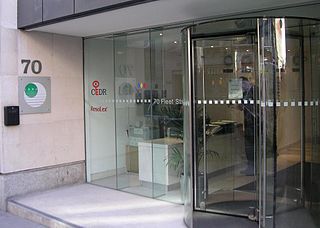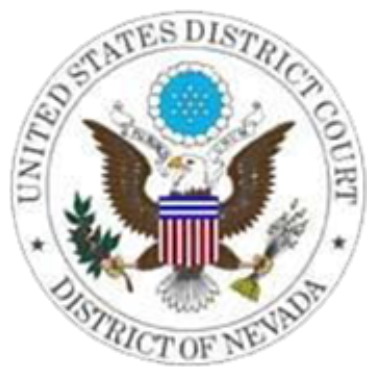Related Research Articles
Arbitration, in the context of United States law, is a form of alternative dispute resolution. Specifically, arbitration is an alternative to litigation through which the parties to a dispute agree to submit their respective positions to a neutral third party for resolution. In practice arbitration is generally used as a substitute for litigation, particularly when the judicial process is perceived as too slow, expensive or biased. In some context, an arbitrator may be described as an umpire.
Dispute resolution or dispute settlement is the process of resolving disputes between parties. The term dispute resolution is sometimes used interchangeably with conflict resolution, although conflicts are generally more deep-rooted and lengthy than disputes. Dispute resolution techniques assist the resolution of antagonisms between parties that can include citizens, corporations, and governments.
Mediation is a dynamic, structured, interactive process where an impartial third party assists disputing parties in resolving conflict through the use of specialized communication and negotiation techniques. All participants in mediation are encouraged to actively participate in the process. Mediation is a "party-centered" process in that it is focused primarily upon the needs, rights, and interests of the parties. The mediator uses a wide variety of techniques to guide the process in a constructive direction and to help the parties find their optimal solution. A mediator is facilitative in that she/he manages the interaction between parties and facilitates open communication. Mediation is also evaluative in that the mediator analyzes issues and relevant norms ("reality-testing"), while refraining from providing prescriptive advice to the parties.

A non-disclosure agreement (NDA), also known as a confidentiality agreement (CA), confidential disclosure agreement (CDA), proprietary information agreement (PIA) or secrecy agreement (SA), is a legal contract between at least two parties that outlines confidential material, knowledge, or information that the parties wish to share with one another for certain purposes, but wish to restrict access to. Doctor–patient confidentiality, attorney–client privilege, priest–penitent privilege, bank–client confidentiality, and Kickback agreements are examples, often not enshrined in a written contract between the parties.
In law, a settlement is a resolution between disputing parties about a legal case, reached either before or after court action begins. The term "settlement" also has other meanings in the context of law. Structured settlements provide for future periodic payments, instead of a one time cash payment.
A stay of proceedings is a ruling by the court in civil and criminal procedure, halting further legal process in a trial or other legal proceeding. The court can subsequently lift the stay and resume proceedings based on events taking place after the stay is ordered. However, a stay is sometimes used as a device to postpone proceedings indefinitely.

The Convention on the Recognition and Enforcement of Foreign Arbitral Awards, commonly known as the New York Convention, was adopted by a United Nations diplomatic conference on 10 June 1958 and entered into force on 7 June 1959. The Convention requires courts of contracting states to give effect to private agreements to arbitrate and to recognize and enforce arbitration awards made in other contracting states. Widely considered the foundational instrument for international arbitration, it applies to arbitrations that are not considered as domestic awards in the state where recognition and enforcement is sought.
International arbitration is arbitration between companies or individuals in different states, usually by including a provision for future disputes in a contract.

Arbitration, a form of alternative dispute resolution (ADR), is a way to resolve disputes outside the courts. The dispute will be decided by one or more persons, which renders the "arbitration award". An arbitration award is legally binding on both sides and enforceable in the courts.

An arbitral tribunal is a panel of one or more adjudicators which is convened and sits to resolve a dispute by way of arbitration. The tribunal may consist of a sole arbitrator, or there may be two or more arbitrators, which might include either a chairman or an umpire. Members selected to serve on the tribunal are typically professionals with expertise in law and mediation, although some scholars have suggested that the ideal composition of an arbitral tribunal should include at least one economist, particularly in cases that involve questions of asset or damages valuation.
International Commercial Law is a body of legal rules, conventions, treaties, domestic legislation and commercial customs or usages, that governs international commercial or business transactions. A transaction will qualify to be international if elements of more than one country are involved.
Alternative dispute resolution (ADR), or external dispute resolution (EDR), typically denotes a wide range of dispute resolution processes and techniques that act as a means for disagreeing parties to come to an agreement short of litigation: a collective term for the ways that parties can settle disputes, with the help of a third party. However, ADR is also increasingly being adopted as a tool to help settle disputes alongside the court system itself.
Hall Street Associates, L.L.C. v. Mattel, Inc., 552 U.S. 576 (2008), was a United States Supreme Court case that held that state and federal courts cannot, on a motion to vacate or to modify an arbitration award, expand the limited scope of judicial review specified in 9 U.S.C. §§ 10 and 11, including terms that were agreed upon by the parties.
Investor-state dispute settlement (ISDS) or investment court system (ICS) is a system through which investors can sue countries for discriminatory practices. ISDS is an instrument of public international law, and it contains a number of bilateral investment treaties, in certain international trade treaties, such as the USMCA. A version of it also appeared in the older NAFTA, and the CPTPP and CETA agreements. ISDS is also found in international investment agreements, such as the Energy Charter Treaty. If an investor from one country invests in another country, both of which have agreed to ISDS, and the host state violates the rights granted to the investor under the treaty, then that investor may bring the matter before an arbitral tribunal.
Gary B. Born is an international lawyer and academic. He is chair of the International Arbitration and International Litigation practices at the international law firm, Wilmer Cutler Pickering Hale and Dorr LLP, and the author of a number of commentaries, casebooks and other works on international arbitration and litigation.

The Arbitration Act 1996 is an Act of Parliament which regulates arbitration proceedings within the jurisdiction of England and Wales and Northern Ireland.
Franchise fraud is defined by the United States Federal Bureau of Investigation as a pyramid scheme.
Litigation funding, also known as legal financing and third-party litigation funding (TPLF), enables a party to litigate or arbitrate without having to pay for it, whether because they are unable to pay for it or because they do not want to. A third party professional funder can pay some or all of the costs/expenses associated with a dispute in return for a share of the proceeds of the dispute if it is successful. If the litigation is not successful, the funder bears the costs it has agreed to fund.
Disputes between consumers and businesses that are arbitrated are resolved by an independent neutral arbitrator rather than in court. Although parties can agree to arbitrate a particular dispute after it arises or may agree that the award is non-binding, most consumer arbitrations occur pursuant to a pre-dispute arbitration clause where the arbitrator's award is binding.

In re Zappos.com, Inc., Customer Data Security Breach Litigation, 893 F. Supp. 2d 1058, was a United States District Court for the District of Nevada case in which the Court held that Zappos.com's customers were not held to the browsewrap terms of use because of their obscure nature. The courts also held that the agreement was unenforceable because Zappos had reserved the right to change it at any time without informing the customers. This court decision set a precedent for businesses that use browsewrap agreements and/or include a clause in their agreements that allow them to change the agreements at any time. The decision encouraged conversation on how a business should most fairly display its terms of use and how to avoid unfairness and ambiguity when writing them.
References
- ↑ Sime, Stuart; French, Derek (2012). Blackstone's Civil Practice 2013: The Commentary. Oxford University Press. 48.35. ISBN 9780191645495.
- ↑ Cook, Trevor; Garcia, Alejandro I. (2010). International Intellectual Property Arbitration - Volume 2 of Arbitration in context series. Kluwer Law International BV. p. 265. ISBN 9789041127259.
- ↑ Matthews, Paul; Malek, Hodge M. (2012). Disclosure. Sweet & Maxwell. p. 441. ISBN 9780414047792.
| This article relating to law in the United Kingdom, or its constituent jurisdictions, is a stub. You can help Wikipedia by expanding it. |